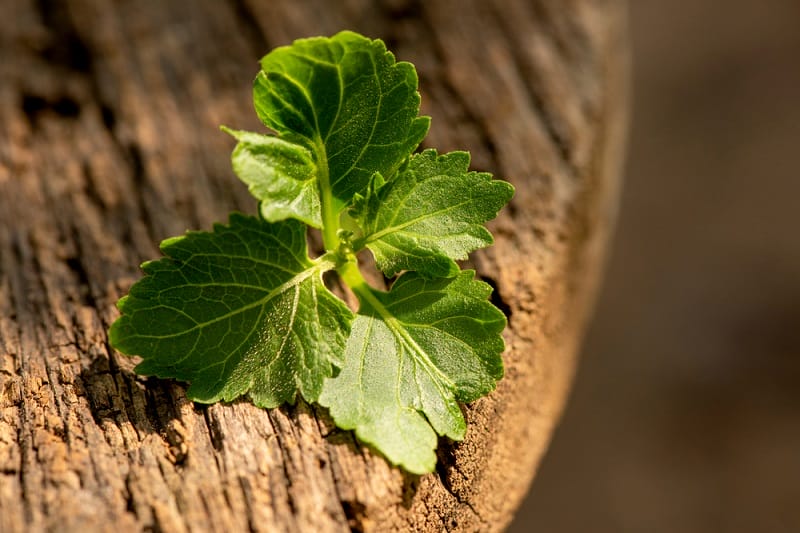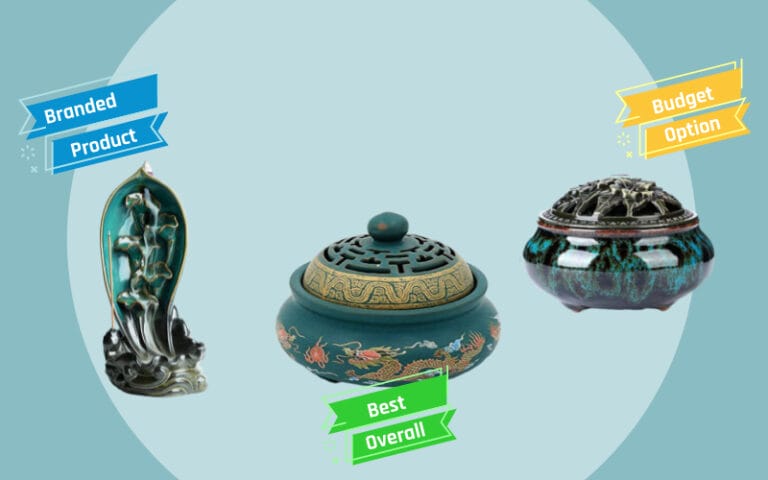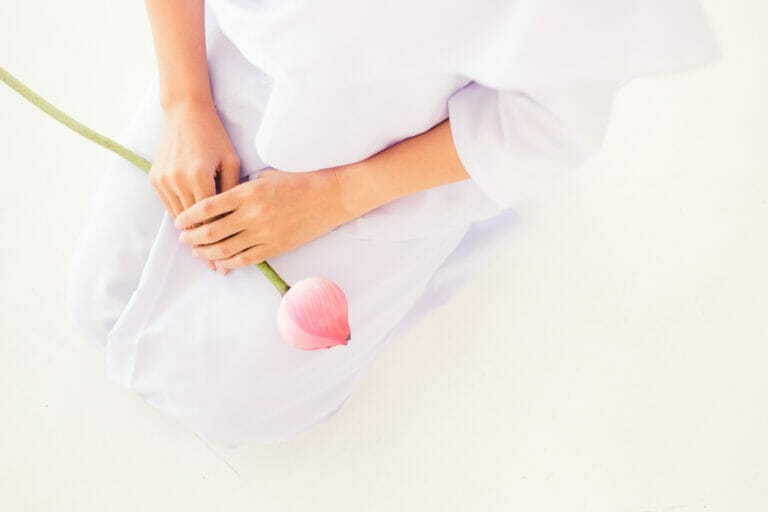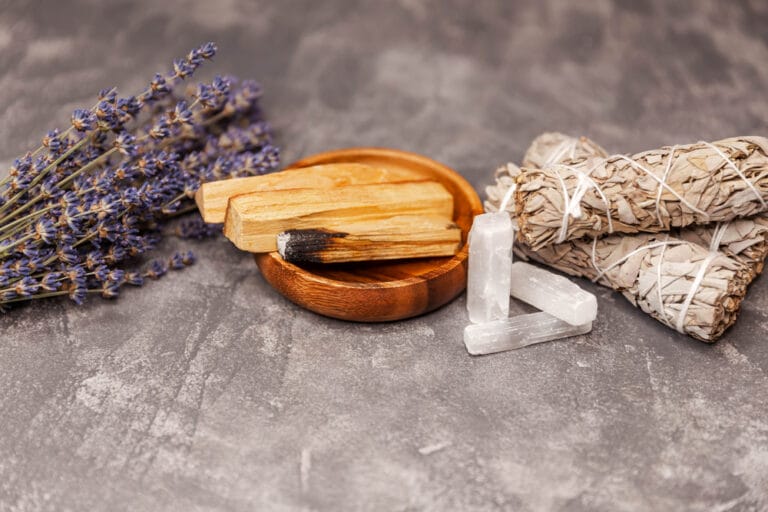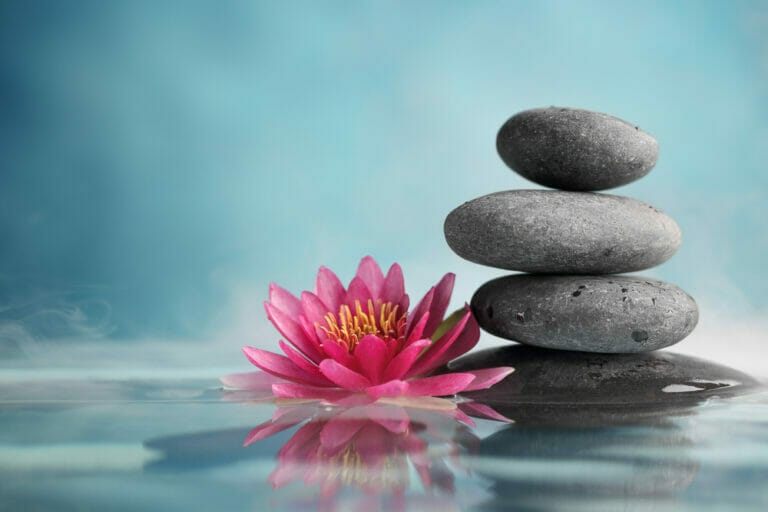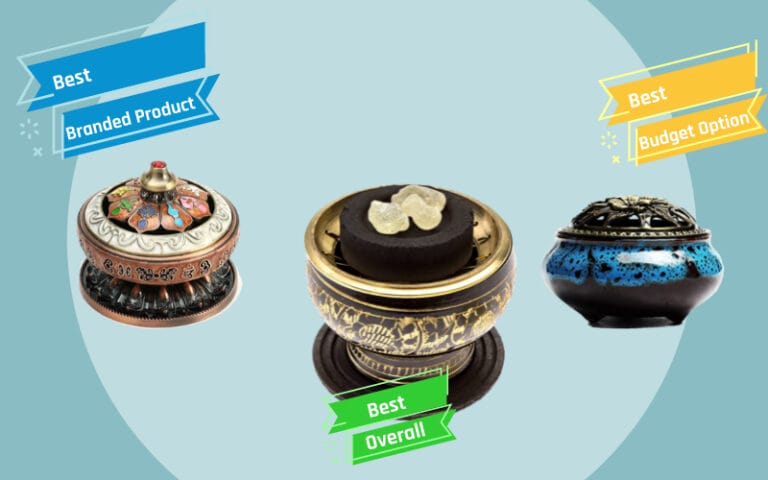Is Patchouli Edible? Explore all its Possible Uses
Patchouli, a shrubby perennial plant native to tropical Southeast Asian countries, has now spread to other parts of Asia and South America. This herb has a wide range of uses, but one question that often arises is whether it is safe to consume.
In this blog, we will explore the Risks and benefits of consuming patchouli.
Typically, patchouli is used in perfumes, essential oils, scented soaps and incense. But it’s not just limited to this, as it has various other uses too.
Can You Eat Patchouli Leaves?
Yes, patchouli is an edible herb.
While you can eat patchouli leaves, you might not particularly enjoy its taste. You can, however, steep the leaves to make herbal tea, which is a very healthy drink.
Many Eastern cultures use it in their cuisine. Western countries, on the other hand, are not very accustomed to it.
Patchouli is commonly used as an ingredient in curry-based dishes, rice dishes, soups, etc.
It is also found effective in treating constipation. Patchouli Ayurvedic treatment for bowel problems results in more bowel movements and increased stool mass.
Please keep in mind, however, that if you are in any such situation, you should consult with a doctor first and follow their advice.
History of Patchouli
For centuries, Patchouli has been considered a useful herb with multiple medicinal properties. You can find its presence in Chinese, Ayurvedic, and Greek medical history. These leaves were used to reduce the smell of cannabis or its products. In the nineteenth century, it was shifted to the UK where its application became common in the British population. Hippies were also fond of this oil and its fragrance was associated with them.
Currently, this plant is highly popular with a demand of around 1,500 – 2,000 tons. The most famous country with the largest harvest of this plant is Malaysia where its warm and tropical environment gives its production in tons. Other countries that are significant for its exports are Singapore, Sri Lanka, the Malay Peninsula, New Guinea, etc. Mainly, its leaves are used to get the oil as there is no other synthetic way to get this natural product.
Components of Patchouli
The benefits of these natural leaves are based on the following components:
- Patchoulol
- Cinnamic aldehyde
- Eugenol
- Pinene
- Azulene
Patchoulol has anxiolytic properties which is why this herbal product plays its role as a tranquiliser and helps a person who is suffering from anxiety issues or stress. Its consumption helps in reducing those symptoms up to a certain level. Moreover, it offers anti-inflammatory properties because of the presence of azulene.
The other antimicrobial elements are important in fighting against germs and bacteria and prevent their growth in the body. That is why a person who regularly uses Patchouli, faces fewer health issues or diseases in general. Other components and their effects on the human body are still under study.
Culinary Uses of Patchouli
Patchouli has culinary uses. It’s also well known in Asia as a herbal tea. Taken as a hot tea it is used as a treatment for skin conditions such as acne and flaking, and for relaxation and stress relief.
In many cultures it is also used in cooking, eaten as a vegetable or for adding flavor to dishes as a seasoning, and is from the same family of plants as mint.
Patchouli leaves that have been dried and powdered are used in a number of Eastern dishes, such as a flavoring in rice porridge and in a soup with hyacinth and honeysuckle.
Medicinal Uses of Patchouli
Both the fresh and dried leaves of the patchouli plant have long been used in Eastern medicine. In Chinese traditional healing it is known as “Guanghuoxiang” and is used to treat nausea, diarrhea, and cold symptoms such as headaches and fever.
It is considered to be safe in medicinal usage and has no known side effects. although by tradition it is not recommended for blood disorders.
The patchouli plant features in Indian Ayurvedic treatments such as Rasa which is the sense of taste and Guna which affects the potency of drugs.
Patchouli oil is also used in the treatment of hair conditions such as dry scalp and dandruff, and can have a rejuvenating effect on the scalp, encouraging the growth of hair follicles.
Other Uses
It is one of the most important ingredients in incense and cosmetics as well. By burning the incense sticks, sweet fragrances make the indoor environment calming and pleasant. Such an atmosphere has a positive impact on the human mind by improving the mood.
So, this incense helps in making a person calm by reducing stress symptoms. Its oil is used in perfumes and soaps because of its specific fragrance. This oil helps in having a distinctive scent and has been used as a scent base for thousands of years.
Moreover, in the past, it was added in Indian ink to have durable prints. Not just fixed dye, the alcohol component shortens the drying process of the printing ink. Its benzaldehyde makes it suitable to act as a repellent for mosquitoes and moths. In Asia, these leaves were kept in between clothes to keep insects away.
It is also effective in beekeeping where it protects against the bee stung during the harvest. For this purpose, oil is applied on hands, arms, and other naked parts to keep bees away.
Is Patchouli Oil Edible?
The essential oil of patchouli is very popular among perfumers.
Patchouli oil is produced from the leaves and is used externally. It’s safe to use patchouli oil on your skin.
However, you shouldn’t consume patchouli oil. Consuming or inhaling patchouli oil can have serious side effects.
In aromatherapy, patchouli oil is often used to relieve symptoms of depression, stress and anxiety.
Patchouli oil is extracted from the leaves. It is used in perfumes and soaps. It is one of the most important ingredients in incense and cosmetics as well.
Due to its antibacterial, antifungal and anti-inflammatory properties, patchouli oil is a great ingredient in skincare products and can help in reducing acne and acne scars, preventing premature aging of skin, preventing stretch marks and various other skincare related problems.
Patchouli essential oil has a characteristic and long-lasting odor that is somewhat sweet and earthy, and somewhat musky. It is used to set a mood, or to make a statement.
Possible Side Effects of Patchouli
Generally, Patchouli is safe to use in various forms because of its harmless components. However, in certain cases, people face skin issues like redness or itching by using the Patchouli oil in undiluted form. If you also face such an issue, then avoid the concentrated oil and dilute it by adding water before applying it to the skin. Also, avoid it to apply under the eyes to save yourself from infections.
There is another side effect that can be an advantage for certain people is the loss of appetite. When you consume it, you will feel a low appetite. So, underweight people must avoid it. On the other hand, people suffering from obesity should consume it to lower their calorie intake for weight loss.
Important Instructions
There is no clear evidence or research about the reaction of patchouli with any other drug. So, people on certain medications may take it. To be on the safer side, you must consult your medical health provider before using it in any form. Likewise, whether this plant is safe during breastfeeding or pregnancy, is still not supported by any study. So, they need to avoid it to be safe from adverse effects.
Guidelines for Proper Growth of Patchouli
The growth process of Patchouli is simple but there are multiple steps required to dry the leaves to turn them into tea or oil. That is why it is rarely found in personal gardens. However, if you wish to do so you need to keep the following guidelines for proper growth:
- The moist soil where you want to plant it must have a pH level of 5.5 or a maximum of 6.2. Such soil is acidic a little bit and is best for Patchouli
- Water the soil or plant daily for fast growth.
- Full or partial sunlight is best for growth. However, you can also plant it in indoor or shady areas.
- Begin the plantation process of seed in the spring weather as after that temperature remains high that is required for the growth. Around 65°F (18°C) is best for the optimal nurture.
- For colder regions, it is best to plant seeds in a pot. This way you can take the pot inside in winter.
- Keep a distance of two feet between various plant cuttings.
By following these instructions, you can harvest the leaves within six months. Enjoy the harvest twice or thrice in a year. Remember to replant it with a gap of three to four years as this strategy gives you strong leaves with better yield.
Frequently Asked Questions
Q: Is it safe to consume patchouli tea in a routine?
Tea is made from dried leaves of patchouli which are safe to consume in any form including tea. However, the oil may show hazardous effects so you need to be careful while adding it to your food or drinks.
Q: What is the primary role of patchouli oil?
This oil is famous for improving mood swings and creating positive energy with the reduction in stress, anxiety symptoms, or, insomnia
Q: What is the ideal form of consuming Patchouli?
To experience all the positive effects of this plant, one should consider using it in medicinal forms. In culinary forms, where you use it for seasoning may not give you the desired effects.
Q: Is Patchouli suitable for feminine or gent scents?
Patchouli scent is suitable for both genders as such fragrance is trendy among men and women equally with unique and pleasant top, heart, and base notes.
Parting Words
In conclusion, the patchouli herb is a versatile plant that can be utilized for its fragrance, medicinal properties, and even flavor.
It can enhance the taste of various dishes when used as a substitute for mint leaves, and it is commonly found in Asia.
While the aroma of patchouli has long been associated with the hippie and counterculture movement, it is not always pleasing to everyone.
Some may find the scent too persistent. However, there is a growing market for edible mints and herbs among herbalism enthusiasts.
It’s important to note that consuming patchouli should be done with caution and after consulting with a healthcare professional.
If you have any further questions or concerns about the consumption of this herb, please feel free to leave your comments and I will be happy to respond.

